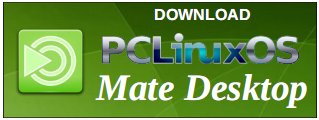| Previous
Page |
PCLinuxOS
Magazine |
PCLinuxOS |
Article List |
Disclaimer |
Next Page |
Behind The Scenes: Wamukota & PCLinuxOS.nl |
|
by Paul Arnote (parnote)
Let me thank you for the opportunity to express myself through the Behind the Scenes series. As a community is more than just one person, this article also covers 'The Making Of PCLinuxOS.nl' and has inputs from other PCLinuxOS.nl members (as indicated by their [alias]). -- Alain J. Baudrez 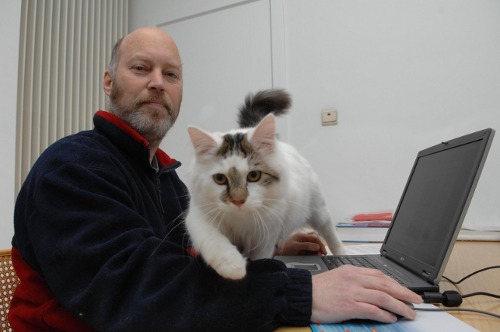 Alain J. Baudrez Can you start us off by introducing yourself, and by telling us a bit about you (where you live, age, full name, marital status, children, hobbies, etc.)? In cyberspace I am known as Wamukota -- an African male name meaning 'left-handed' in the Abaluhya language (Kenya) -- while in meatspace I listen to the name of Alain J. Baudrez. I am a 53 years old retired sysadmin/programmer from the Belgian Navy. I am married to Brigitte. Having no children, our common hobbies are our pets (2 dogs and 3 cats), while I have taken up photography (again) as I have plenty of time now ;-). I live in Brugge, a small semi-medieval town in the North-Western part of Belgium. In the Northern part of Belgium (Flanders) we speak Flemish, which is a dialect of the Dutch language. In the Southern part of Belgium French is the main language. The written language is the same in both the Netherlands and in Flanders, which comes in handy when setting up a multinational community. In 2001 I was diagnosed with ESRD (End Stage Renal Disease) which resulted in both my kidneys shutting down in March 2002. I had to go to the hospital three times a week to have my blood filtered using dialysis. Luckily I got a donor kidney on April 23, 2003. I can not express how grateful I am towards the unknown donor who saved my life. When did you first get started with computers, and what were you running? /p> It all started somewhere in 1976 when I received a portable calculator (Texas TI SR-56) from a cousin who preferred the HP series as they were using the RPN (Reverse Polish Notation) method of entering data. The SR-56 was programmable (100 steps and 8 memory registers) and I made my first programs on it. The next major step was the Tandy TRS-80 Model I where I learned how to program in a kind of Basic language. From there the usual evolution followed such as the first SS/SD floppy drives for the model I, and consequently learning TRS-DOS. I did work with the CP/M based Schneider 6128 and enjoyed IBM OS/2 2.0. As an autodidact, my 'wizardry' with computers did not go by unnoticed on board the frigates I was assigned to. I had a portable Tandy Model 100 with me at that time, and my CO suggested that I apply for an ICT job in our Navy. So, in 1986 I stopped sailing and became one of the first programmers/sysadmins of the Belgian Navy running Microsoft products, and it has remained Microsoft for the rest of my professional career. My first encounter with Linux was S.u.S.E Linux 4.2 (around 1996-97), where a colleague used it to run a kind of gateway between our intranet and our ISP to collect and distribute POP3 mails. I switched from Microsoft being my main OS at home to Linux with Suse Linux 9.2. When did you switch to running PCLinuxOS, and what attracted you to PCLinuxOS? I started using PCLinuxOS with version 0.93 and the first TRs of the 2007 version. At that time, I was still using openSUSE, but problems getting wireless up and running (ndiswrapper through console) and multimedia woes made me look for a snappier and more complete distro. It didn't take long to find PCLinuxOS which, even in its 2007 Beta state, was just what I was looking for. It was simple, complete, fast and it was the first distro where productivity was the focus, not 'making the thing work.' Moreover, there was already a nice and fresh Dutch community emerging. As an administrator of PCLinuxOS.nl, can you please tell us about the Dutch community using PCLinuxOS? (how many members, when it was formed, who are the moderators and administrators there, forum activity, etc.). The Dutch PCLinuxOS community was founded by Mike Bing (NewMikey) and Jos Wolfkamp (DutchWolfie) who had met on the Dutch language forum at pclinuxos.com. NewMikey was a PCLinuxOS "convert" from then-Mandrake as far back as PCLinuxOS Preview 81a. The website in its actual form was brought online November 30, 2005, but it took until Xmas of 2006 before we saw any other members besides our little group and some family and friends (NewMikey's son, Rayman has been using PCLinuxOS since age 9 and became a contributor to the forums as well). [NewMikey] We would be amiss if we did not recognize the help and support of Lars of PCLinuxOS.de, the German site. One of the very first emails said: On Wednesday 30 november 2005 17:03, Mike Bing wrote: Lars, Thanks for your speedy reply. Just a few questions: in order to register pclinuxos.de did you get authorization from Tex first? How do you finance it? Instead of registering pclinuxos.nl would it be possible to join forces on pclinuxos.org and make it truly multilingual? (A bit like the Mandrake Club site.) I would not want to host packages because of the risk of losing compatibility with the main PCLOS, what is your opinion? Could there be a "PCLOS Club"? Jos, I know you are interested in the distro from our exchanges on the PCLOS Dutch language forum (the. com), would you be interested to join up to accomplish something like that? To both of you: thanks for thinking (meedenken). Mike We went straight to Tex for his permission/approval as we felt very strongly about not using the name PCLinuxOS unless Tex liked the idea. We received our reply a few days late as Tex turned out to have been very busy with P.A.S.S. His elaborate reply, on December 4th, 2005, after being asked whether he was OK with us setting up pclinuxos.nl, was:
Subject: Re: Dutch website Tex? Yes, it's fine with me. 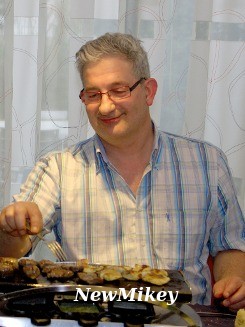 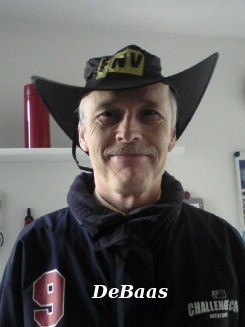 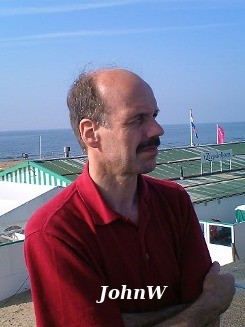 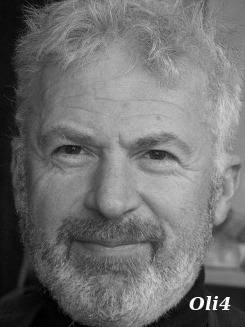 [Wamukota] There are currently four admins being both founders NewMikey and DutchWolfie, Ed M. Berntsen (DeBaas) and me. The moderators are Jan T'Jaeckx (Smurfslover), Wim Willemsen (JohnW) and Oliver van Praag (Oli4). As of today we count just over 600 names on our member list. Another unique fact is that PCLinuxOS.nl, is a pure bi-national team effort. Admins, mods and members come from the Netherlands, as well as from Flanders in Belgium. It is actually a bonus, as both cultures are slightly different; the vocabulary differs slightly; the Dutch are more outgoing while the Flemish are more conservative. We even type on two different keyboards: the Dutch use the standard QWERTY, while in Flanders we use the French AZERTY keyboard. We even differ on religious and political ideas, but that has never been an issue. It is just the other way round. We learn much about our neighbors. The activity on the forum cannot be compared with what you have on the US forum. First, the number of Dutch speaking people (population 16,500,000 for the Netherlands and 6,100,000 for Flanders) running Linux is small. Secondly, many of those speak/read/write English fluently, so we won't see them very often. How would you describe the average Dutch PCLinuxOS user? [DeBaas] I'd like to jump in, as Linux started for me as PCLinuxOS. 93. It was the first one that changed my view on Linux from 'impossible to get working' to 'easy and one time install.' From here, 2007, I found PCLinuxOS as the OS that demonstrated the power of Linux at PC clubs, even family parties and other reunions, with help of only a CD or USB stick. So in my opinion, the average Dutch PCLinuxOS user is caught by surprise, overwhelmed by the ease of PCLinuxOS and never looks back. 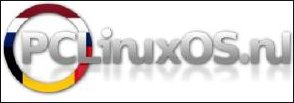 What particular challenges face Dutch PCLinuxOS users that English-speaking users don't have to face? [DeBaas] The use of Pinoc's addlocale and the getopenoffice scripts, including the install of different dictionaries, are the only challenging options to be included for the Dutch users. (Side-note to the Dutch magazine readers: Your help with program translations is still appreciated). How has Pinoc's addlocale impacted the adoption of PCLinuxOS among Dutch users? As NewMikey had already made a localized (Dutch) remaster of PCLinuxOS. 93 and PCLinuxOS 2007, most PCLinuxOS users never did experience the 'manual' way of changing the default English language to Dutch. We also provided an extensive how-to on our forum -- just in case. Today, Pinoc's tool is a great way to let non-English users change the localization of PCLinuxOS to any given language. A largely unknown fact is that study of foreign languages is very popular over here. Pinoc's tool now provides users with an easy way to create an extra user for whatever foreign language they study. On my box, I have 3 separate users, one for Dutch, one English and one French. As I intend to study Russian from September onwards, I will create an extra user with the Russian localization. Pinoc's tool is just super for it. Two versions of PCLinuxOS DPE (Digital Photography Edition) have come out of the efforts of the Dutch community. First, can you give us a little history on the DPE version, and second, what special enhancements are made to the base installation to make the DPE version? First of all, the two DPE's weren't the only thing to come out of this community, we had a fully Dutch localized mainstream PCLinuxOS ISO on our servers for some years now (see previous paragraph), which was renewed upon every fresh release. We have discontinued the habit because Pinoc's excellent work now makes it possible for everybody to localize his/her install in minutes. The first DPE was actually a snapshot of NewMikey's running installation. Being a die-hard photography addict, this install had a lot of stuff floating around that came out of this photography hobby, such as color profiles, contrast curves, RAW development scripts in Bash and Kommander and a great collection of scripts and plugins for GIMP. There even was a Konqueror service menu dedicated to RAW development. As this install was only used for image editing, gradually the collection of graphical programs expanded. At one point in time, the standard updates of certain packages through the repos did not keep up with the rapid technical progress in Linux-photography land and some software packages were either built from source, or old SPEC files were used with new(er) source tarballs to create customized RPMs. This was done particularly with DCRAW and UFRAW, to keep up with new camera models that were not recognized in the older versions, but also with LuminanceHDR (formerly known as QTPFSGUI) and the Hugin panorama editor, due to their rapid rate of development. There was also a stage where we received approval from Gábor Horváth, the author of RawTherapee (back then not yet open-sourced) to include his excellent package, and we went through some close cooperation with David Tschumperlee -- author of the GreyCstoration (now GMIC) noise reduction and image manipulation package -- on making the software more accepting of large images and small memory spaces by a process called tiling. Eventually, the install had become so photography-specific and the collection of tools such a great showcase of what was available for photo-editing in Linux. It became obvious that it would be a great idea to provide an ISO, website and forum to promote the software and drive more users directly to the authors' websites, as well as promoting and popularizing PCLinuxOS as a distro. We always stressed that DPE was not a distro, but merely a remaster showcasing the versatility of PCLinuxOS. For that particular reason, the donation links on the Dutch website always pointed one way only ... to Tex's donation page. As the versions of PCLinuxOS progressed, we trusted that DPE would upgrade as any PCLinuxOS install would, through the repos, until it became obvious about a year ago that certain tools (like RawTherapee) would need a more invasive upgrade of core libraries like libstdc++, as well as a newer C compiler version. When Linuxera and the rest of the team started on a major overhaul of the whole toolchain, that opportunity seemed to come closer and work began on DPE2. At the same time, NewMikey upgraded his camera yet again (an illness also known as CBA: Camera Buying Addiction -- somewhat related to LBA: Lens Buying Addiction -- both incurable) and this time the 14.6 megapixel files resulting from this new and wonderful camera began slowing down the 1GB Dell laptop with external USB drive that DPE was running on. A memory upgrade was out of the question on the aging Dell laptop and therefore, sacrifices had to be made. This resulted in a switch to LXDE as a lightweight low-memory, yet functional and esthetically pleasing desktop environment as a basis for DPE2. Ever since, a release candidate has been available for download on http://hamsta.net/pclinuxos/, web-space donated by a very friendly Linux-fan. As for now, the waiting for PCLinuxOS2010 is over and the final version of DPE2 will be available just as soon as we can update. What are the plans for a new DPE version based on the upcoming releases, and upon which version will the DPE version be built? [NewMikey] The new version of DPE, DPE2 Final will be built upon PCLinuxOS 2010 LXDE, which seems all set to become a rock-solid platform. Is there an anticipated release date for a new DPE version? [NewMikey] Well, I am tempted to say that it will be ready when it's ready. I am waiting for Gabor to release RawTherapee 3, which is a major upgrade, but I'm willing to consider doing a DPE 2 as soon as 2010 final is out end then DPE 2.5 when Gabor releases. Again, between a busy job with international travel and a family with 2 teenage kids, things do tend to get sidetracked now and then, so YMMV. What closing words of advice or wisdom would you like to leave us with? I would like to end with a tribute to and quote of Bruno Knaapen (Amsterdam 28 November 1950 -- 20 February 2010), one of the great open-source and Linux advocates, a friend and Linux mentor to many in the Linux Community. "We try to avoid the word 'newbie', it does no justice to the efforts we, also the beginners, put in to learn a new operating system. I think the wish to learn Linux shows a brave attitude and deserves a better qualification." |

